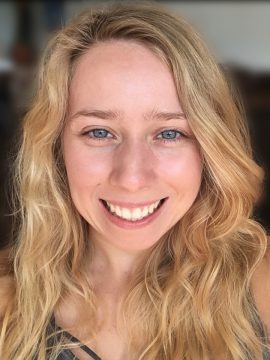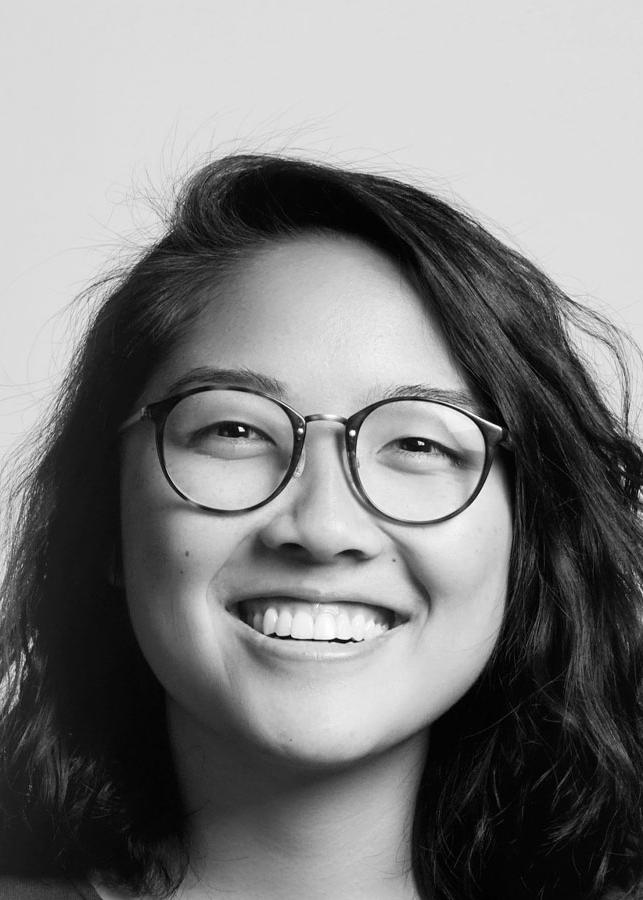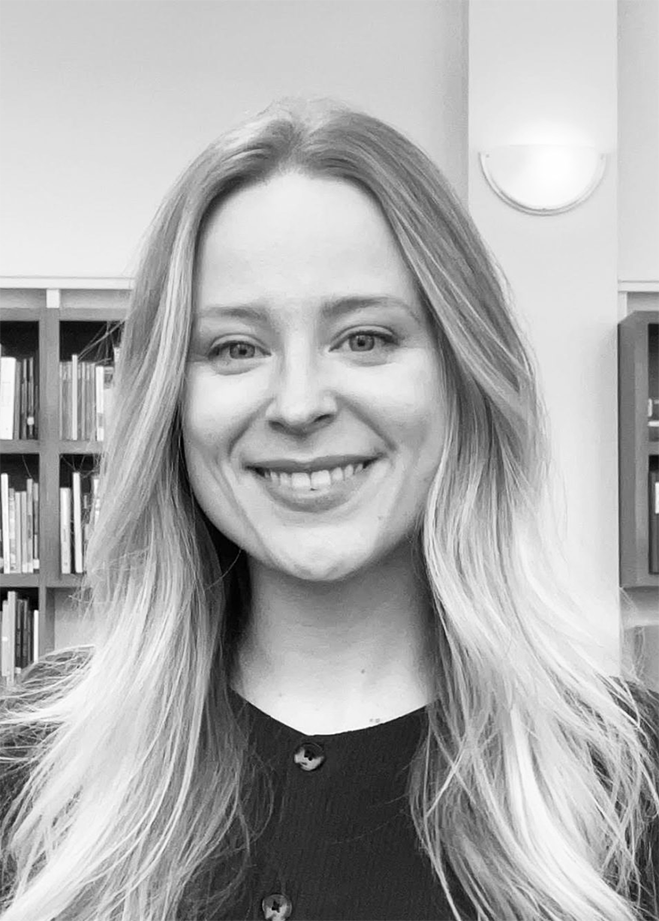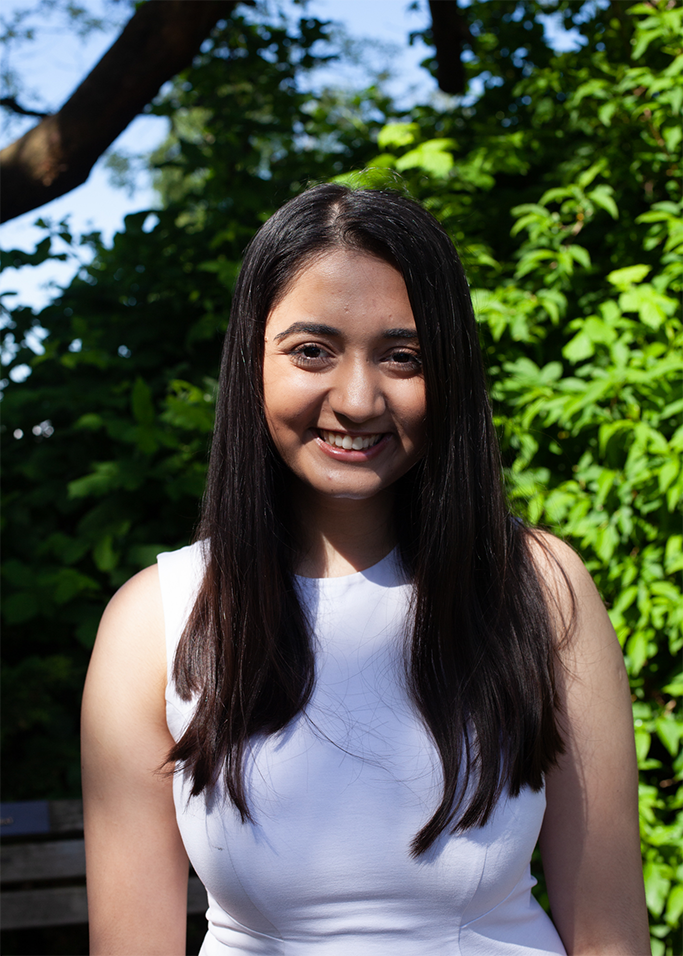Kate De Lorme

Why did you choose your program at UBC and what did you enjoy most about it?
I always knew I wanted to go into the performing arts. I participated in theatre and music in high school and in the community, both on and off stage. When I graduated high school, I knew more or less what I wanted to do, it was just about picking where. Originally, I did one year of Interdisciplinary Performance at UBCO, but soon realized I was missing the technical side of theatre. The next year, I did a certification in Audio Engineering, and the following year I moved to Vancouver to complete my BFA in Theatre Production and Design at UBC.
I really enjoyed getting to participate in as many productions at UBC as I did. It was a really meaningful learning experience to get to work on large productions at many levels in different roles. For me, that is where I learnt the most, what made my time at UBC beneficial to my career and helped my transition into working life.
What choices did you make at UBC that contributed to your career success / journey?
I participated in as many different elements of a show as I possibly could. From painting sets to sound design for a main stage production. I’m really happy that I broke out of my comfort zone and signed up for departments that I didn’t have any experience in because I found new skills in myself and satisfaction for my work. This really helped me have the confidence to leap into the working world, knowing that I don’t know everything there is to know about everything, but understanding that there is always room to learn, that learning by doing is incredibly effective and that confidence in myself is the most important part of getting and succeeding in a job.
What was your first job after graduation and what other jobs did you have before your current position?
I applied for and was hired by The Arts Club pretty much as soon as I graduated. I had been working in technical theatre since I was 16 and continued throughout university, taking calls here and there during the semester and longer contracts over the summers. I was hired at the Arts Club as second Head of Sound, but I did other technical theatre work apart from sound while there. Working at the Arts Club was an incredible learning experience and taught me so many useful skills that I was able to take forward with me. I worked there for almost a year, taking some freelance design shows on the side, before leaving to ultimately pursue full time freelance sound design.
Is your current career path as you originally intended? What challenges did you face in launching your career?
My career path is surprisingly similar to the one I started out with at the beginning of my time at UBC. Once I moved to Vancouver, I knew I wanted to be a sound designer. How it’s changed in more recent years has only been for the better, moving away from theatre, I now mainly design for contemporary dance. The contemporary dance scene in Vancouver is amazing, innovative, and technology and design forward.
Recently, I have been able to branch off into my solo career as a sound artist which has been incredibly fulfilling, even in its infancy. I plan to always be working and collaborating with other artists, designers, directors and choreographers, and I am so excited for what the future holds for my art.
From your experience, what has been the value of having an Arts degree?
My Arts degree gave me knowledge, experience, and connections, but most of all it gave me the opportunity to fail. By that I mean, the opportunity to explore the unknown and not have to get it right the first time. People were counting on me in everything I did, but it was still a learning environment with help from professors, administrators, staff, and other students. I was so well supported that I felt like I could take risks that I would not have been able to take in “the real world”. For instance, my sound design professor and mentor on a show introduced me to Logic, a music production software. I have no piano training, so composition was never part of my design process. Through experimenting with Logic, I found that I had a way of composing unique to my abilities and that I was fully capable of composing soundscapes and melodies. This is a skill I use on every project now and I don’t think I would have had the confidence to try it outside of that learning environment. I composed a whole soundscape world for the Bacchae 2.1 in my final year at UBC—I am still very proud of that work.
Are there any other achievements or activities you would like to highlight?
Recently, I was an Artist in Residence at the Spatial Sound Institute in Budapest, Hungary. I was there for two months learning, creating with and beta-testing 4DSOUND’s new spatial sound technology. It was so incredible to work with this software in this unique studio (1 of 2 in the world). It’s nothing like I’ve experienced before—a whole new way of working with sound. At the end of my residency period, I had a listening session with members of the community for the work I created on the system. It was an incredible experience to present something that was just mine and inspired me to keep creating!
What advice would you give to students and alumni interested in breaking into your industry?
Get as much experience as you can. Volunteer. Try different things outside your skillset—you might find something more fun! You can always do two (or three or four) things! It never hurts to have multiple skills to fall back on. Look into what it takes to be able to apply for grants and start working toward meeting those qualifications.
What advice would you give to your first-year self?
It’s okay to say, “I don’t know.” Accept that you need to be taught things. You’re here to learn! You don’t need to know everything. When someone asks you if you know how to do something and you don’t, that is the moment when you will learn how! Be humble. People will respect you for your honesty and teach you how to do the thing. No one will look down on you for wanting to learn.
Kate De Lorme



Why did you choose your program at UBC and what did you enjoy most about it?
I always knew I wanted to go into the performing arts. I participated in theatre and music in high school and in the community, both on and off stage. When I graduated high school, I knew more or less what I wanted to do, it was just about picking where. Originally, I did one year of Interdisciplinary Performance at UBCO, but soon realized I was missing the technical side of theatre. The next year, I did a certification in Audio Engineering, and the following year I moved to Vancouver to complete my BFA in Theatre Production and Design at UBC.
I really enjoyed getting to participate in as many productions at UBC as I did. It was a really meaningful learning experience to get to work on large productions at many levels in different roles. For me, that is where I learnt the most, what made my time at UBC beneficial to my career and helped my transition into working life.
What choices did you make at UBC that contributed to your career success / journey?
I participated in as many different elements of a show as I possibly could. From painting sets to sound design for a main stage production. I’m really happy that I broke out of my comfort zone and signed up for departments that I didn’t have any experience in because I found new skills in myself and satisfaction for my work. This really helped me have the confidence to leap into the working world, knowing that I don’t know everything there is to know about everything, but understanding that there is always room to learn, that learning by doing is incredibly effective and that confidence in myself is the most important part of getting and succeeding in a job.
What was your first job after graduation and what other jobs did you have before your current position?
I applied for and was hired by The Arts Club pretty much as soon as I graduated. I had been working in technical theatre since I was 16 and continued throughout university, taking calls here and there during the semester and longer contracts over the summers. I was hired at the Arts Club as second Head of Sound, but I did other technical theatre work apart from sound while there. Working at the Arts Club was an incredible learning experience and taught me so many useful skills that I was able to take forward with me. I worked there for almost a year, taking some freelance design shows on the side, before leaving to ultimately pursue full time freelance sound design.
Is your current career path as you originally intended? What challenges did you face in launching your career?
My career path is surprisingly similar to the one I started out with at the beginning of my time at UBC. Once I moved to Vancouver, I knew I wanted to be a sound designer. How it’s changed in more recent years has only been for the better, moving away from theatre, I now mainly design for contemporary dance. The contemporary dance scene in Vancouver is amazing, innovative, and technology and design forward.
Recently, I have been able to branch off into my solo career as a sound artist which has been incredibly fulfilling, even in its infancy. I plan to always be working and collaborating with other artists, designers, directors and choreographers, and I am so excited for what the future holds for my art.
From your experience, what has been the value of having an Arts degree?
My Arts degree gave me knowledge, experience, and connections, but most of all it gave me the opportunity to fail. By that I mean, the opportunity to explore the unknown and not have to get it right the first time. People were counting on me in everything I did, but it was still a learning environment with help from professors, administrators, staff, and other students. I was so well supported that I felt like I could take risks that I would not have been able to take in “the real world”. For instance, my sound design professor and mentor on a show introduced me to Logic, a music production software. I have no piano training, so composition was never part of my design process. Through experimenting with Logic, I found that I had a way of composing unique to my abilities and that I was fully capable of composing soundscapes and melodies. This is a skill I use on every project now and I don’t think I would have had the confidence to try it outside of that learning environment. I composed a whole soundscape world for the Bacchae 2.1 in my final year at UBC—I am still very proud of that work.
Are there any other achievements or activities you would like to highlight?
Recently, I was an Artist in Residence at the Spatial Sound Institute in Budapest, Hungary. I was there for two months learning, creating with and beta-testing 4DSOUND’s new spatial sound technology. It was so incredible to work with this software in this unique studio (1 of 2 in the world). It’s nothing like I’ve experienced before—a whole new way of working with sound. At the end of my residency period, I had a listening session with members of the community for the work I created on the system. It was an incredible experience to present something that was just mine and inspired me to keep creating!
What advice would you give to students and alumni interested in breaking into your industry?
Get as much experience as you can. Volunteer. Try different things outside your skillset—you might find something more fun! You can always do two (or three or four) things! It never hurts to have multiple skills to fall back on. Look into what it takes to be able to apply for grants and start working toward meeting those qualifications.
What advice would you give to your first-year self?
It’s okay to say, “I don’t know.” Accept that you need to be taught things. You’re here to learn! You don’t need to know everything. When someone asks you if you know how to do something and you don’t, that is the moment when you will learn how! Be humble. People will respect you for your honesty and teach you how to do the thing. No one will look down on you for wanting to learn.



